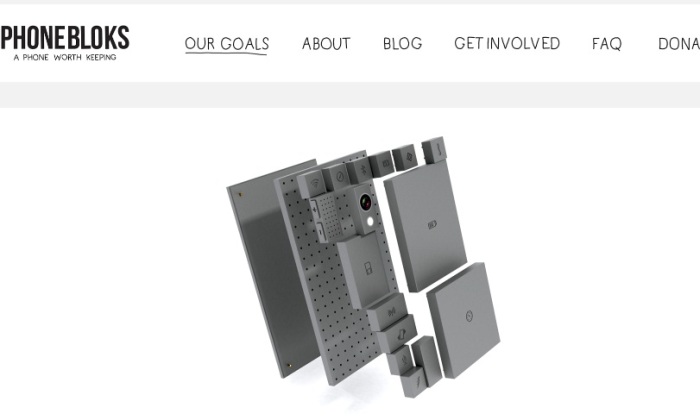Will Modular Phones Succeed? What Are the Boons and Banes?
![By User:Laughingdemon (Own work) [CC-BY-SA-3.0 (http://creativecommons.org/licenses/by-sa/3.0)], via Wikimedia Commons](https://techtheday.com/wp-content/uploads/2014/04/Project-ARA-Concept.jpg)
By User:Laughingdemon (Own work) [CC-BY-SA-3.0 (http://creativecommons.org/licenses/by-sa/3.0)], via Wikimedia Commons
The idea of modular phones is not really new. Google did not start it with Project ARA. There have been a number of attempts to bring this concept to the market. Phonebloks, for one, already had the idea floated in September 2013 as the company tried soliciting support and funding from those who wanted to make modular smartphones a reality. Currently, Phonebloks is still in the process of developing a prototype. It is likely for Google’s Project ARA to overtake the progress of Phonebloks, especially in releasing the actual devices to the market.
So what is it about modular phones that ought to make them interesting? What are the advantages? Are there drawbacks to expect? Should you considering getting your own modular phone when it becomes commercially available?
Advantages
When it comes to advantages, modular phones have a lot to offer. Their very design provides a host of benefits not only to users or consumers but also to manufacturers. Some of the most notable advantages are the following:
-
Easier Parts Replaceability – Modular phones are made up of modules or parts that perform specific functions for the device. These parts are not fixed into a frame or permanently stuck onto other parts of the phone. As such, if one part gets damaged or worn out, it can be simply replaced without the risks of dislodging the electronic components of the other parts. This also means that one damaged part does not make the whole phone useless.
-
Choice of Specs – With a modular phone, you won’t be limited to a fixed set of technical specifications or parts. It is possible to choose a better processor, additional memory, a better camera, or even a higher capacity battery. Conversely, you can opt for lower specs in some areas and choose a few above average parts like a better camera or a higher resolution display.
-
Upgradeability – One of the common complaints of consumers about mobile phones is the frequency of spec upgrades. Very eager tech enthusiasts tend to feel bad not having the latest specs as something new gets released almost every semester. Sony, for instance, releases new flagship Xperia devices every six months. With modular phones, this problem should be eliminated. If a new and more advanced mobile processor gets released, for example, the entire phone no longer has to be upgraded or replaced. The processor module may just be taken off and replaced with the newer one. The same goes with other parts like the display, battery, and sensors. A modular phone may also be upgraded with a fingerprint scanner, a heartbeat monitor, barometer, thermometer, and other components not present on the device when it was bought.
-
Price Flexibility – Another advantage of modular phones is the flexibility of the pricing. You can defer getting all the specs you want if you don’t have enough of the funds yet. Obviously, the price will be lower if you choose lower specs and just gradually upgrade to your preferred specs as soon as you have the money to pay for the upgrade parts.
Possible Drawbacks
There is virtually no disadvantage in having a modular phone. Perhaps the only thing that can be considered a drawback is the build quality. Being modular, the parts will be easily removable. This can lead to durability concerns especially when the modules are frequently being detached and reattached. Also, hardware compatibility issues and even defects may arise if unsanctioned or imitation modules are added to a device.
Why Didn’t This Idea Come Earlier?
Although the idea of modular smartphones only became popular in the last couple of years, it was already envisioned years before. However, the prices of components back then were considerably higher. Also, components from previous years were much bigger and nowhere near the impressive miniaturization achieved at present.Google thinks that modular phones might become successful this time because components now are less expensive and significantly smaller.
![By User:Laughingdemon (Own work) [CC-BY-SA-3.0 (http://creativecommons.org/licenses/by-sa/3.0)], via Wikimedia Commons](https://techtheday.com/wp-content/uploads/2014/04/Project-ARA-Concept.jpg)
By User:Laughingdemon (Own work) [CC-BY-SA-3.0 (http://creativecommons.org/licenses/by-sa/3.0)], via Wikimedia Commons
Challenges to Commercialization Success
Unfortunately, in spite of the practicality and advantages, the success of modular phones is being prevented by by a number of factors. One of these factors is the competition. Google has its own modular phone model and standard. Phonebloks will have a different standard. ZTE also has plans of having their own modular phone line. It won’t be a surprise if other companies will follow suit. The lack of a common standard and compatible hardware designs will likely hamper the commercial success of modular phones. Competing companies will expectedly try to outdo each other and offer varying devices that will eventually become less appealing to buyers.
The idea of modular phones is definitely an attractive one and is something that will yield benefits not only to buyers but also to the environment. Aside from the parts replaceability, upgradeability, and specs and price flexibility, modular devices can also help reduce the amount of e-waste. This can be considered as one of the most anticipated tech innovations of the year.
